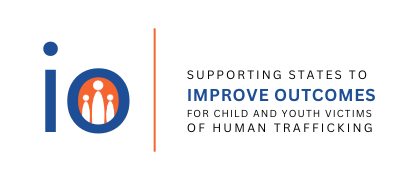Informed Conversation: Improving Skills to Engage Kin/Foster Parents in Supporting Youth Impacted by Human Trafficking
Developed to provide child welfare workers with the knowledge and skills to have conversations with and support kin/foster parents who care for youth who have experienced human trafficking or other forms of exploitation. The training includes activities for
Standard Operation Procedure for Survivors and Those at Risk for Human Trafficking
Establishes requirements and provides instructions for staff when children for whom Department for Community Based Services is legally responsible are believed to be survivors or at risk of human trafficking, as part of the full DCBS policy manual.
Virtual Formative Research With Youth Who Have Experienced Trafficking For Training Development, Interview Guides, And Lessons Learned
Massachusetts’ virtual formative research materials were created to inform trainings and resources for caregivers and child welfare workers to strengthen home-based placements for child and youth victims. Northeastern University (research and evaluation partner on the Improving Outcomes team)
Understanding and Addressing Sex Trafficking in our Community (UAST)
This series introduces a new, Oregon-specific introductory sex trafficking curriculum that builds awareness and gives community groups and service providers specific calls to action. The curriculum, titled Understanding and Addressing Sex Trafficking in our Community (UAST) includes stories
Human Trafficking Awareness and Reporting
Provides instructions on how to conduct an “anti-human trafficking response 101” training for allied professionals. Updated in 2022. Covers the Louisiana Child
and Youth Trafficking Collaborative (LCYTC) project; human trafficking, including common misconceptions; sex and labor trafficking;
and Youth Trafficking Collaborative (LCYTC) project; human trafficking, including common misconceptions; sex and labor trafficking;
